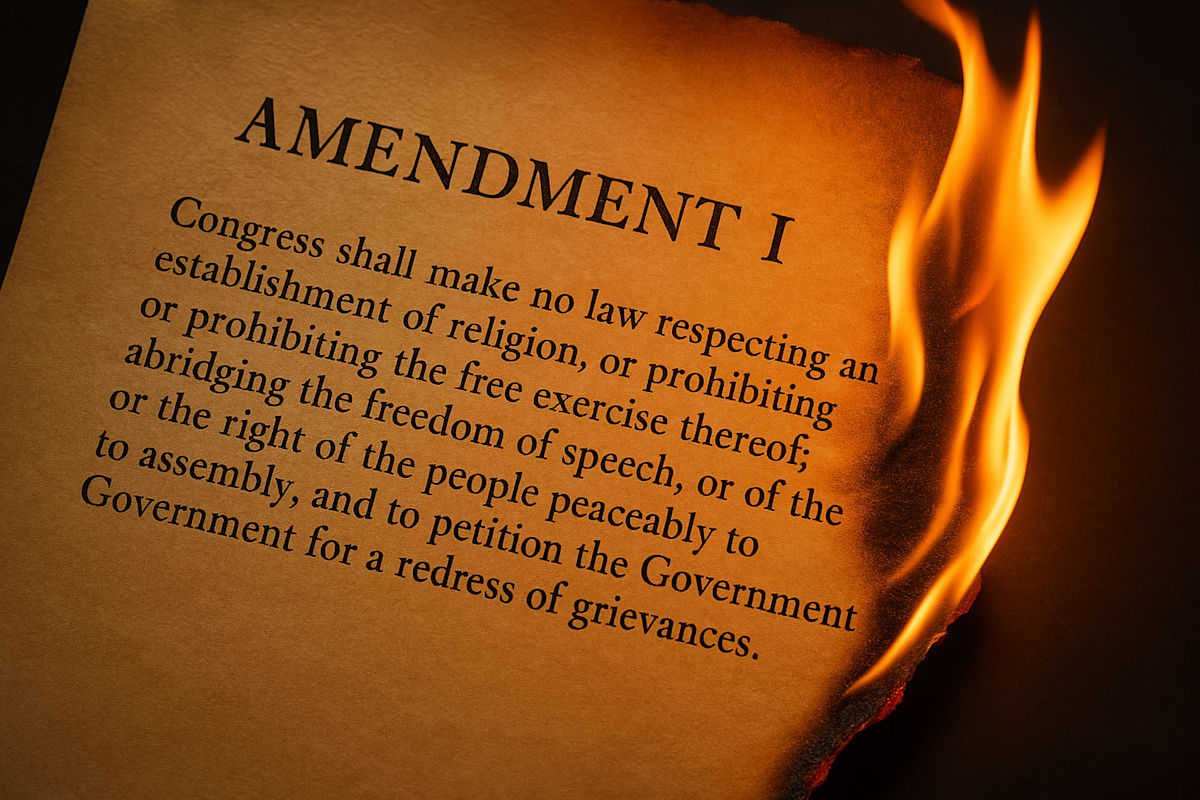It started with a name.
Not a bomb threat. Not a breach of national security. Not even a meme that went viral for the wrong reasons.
Just a name.
When Ms. Rivera stood at the front of her classroom and called roll, she paused—like she always did—at “Allison.” The girl sitting in the third row raised her hand and said, “It’s Aiden now.”
Ms. Rivera smiled and said, “Got it. Aiden.” Then moved on to “Jacob.” It took three seconds. No classroom disruption. No dramatic gasp. Just a teacher doing what teachers have always done: listening to her students.
By lunch, she’d been called to the office.
By third period, she was suspended.
By Friday, she was fired—for using a name that didn’t appear on the school records without parental consent. Policy, they said. Protection, they claimed. Never mind that Aiden had asked. Never mind that no harm had been done—except, perhaps, to the fragile illusion that every child fits neatly into the forms parents fill out in ink.
In today’s episode of That Can’t Possibly Be Real, Oh Wait, It Is, we bring you the story of Mahmoud Khalil, a Columbia grad student and lawful permanent resident, who has been deemed deportable by an immigration judge—not for breaking the law, not for threatening national security, but because his presence might have “serious adverse foreign policy consequences.”
Translation? He attended pro-Palestinian protests. Was loud about it. Maybe made some folks in high places uncomfortable. The Secretary of State—yes, that Secretary of State—decided Khalil’s activism made things look bad diplomatically, and that was enough for the judge to say, “Pack your bags.”
No charges. No crime. Just a memo and a vibe.
And before you write this off as a one-off, a glitch in the bureaucracy, let’s zoom out.
Down in Florida, a teacher was fired for calling a student by their preferred name without parental consent. That’s right. The name the student wanted to be called was enough to cost someone their job. Not for misgendering. Not for refusing to support a student’s identity. But for respecting it.
Meanwhile, a state report warns that Christian students are being “discriminated against” on campuses across the country—because apparently being asked to participate in a pluralistic society is now persecution. (Imagine trying to explain actual religious oppression to these folks.)
So what does this have to do with authors?
Everything.
Because if you're writing anything even remotely political, social, or human, the walls are starting to close in. When the bar for “offense” has sunk so low that a student’s presence or a teacher’s choice of name is a career-ending decision, creatives can’t help but wonder: What’s next?
We joke about book bans, but the fire’s creeping up the library steps. Authors are watching students deported for speech, teachers fired for kindness, and institutions punished for failing to coddle the loudest extremists. It’s not a leap to think that stories—our stories—might be next in the crosshairs.
Because stories do what these protests and preferences and protests of protests all do: challenge comfort. Illuminate injustice. Ask readers to imagine.
And apparently, imagining is dangerous now.
If saying a name can get you fired, and standing on a campus lawn can get you deported, then writing a book about a trans Palestinian teen activist is not bold anymore—it’s borderline reckless.
We’re not afraid to write. But we’d be lying if we said we weren’t watching the horizon.
Because if a name, a protest, or a pronoun is enough to destroy a career today—what do you think they’ll come for tomorrow?
